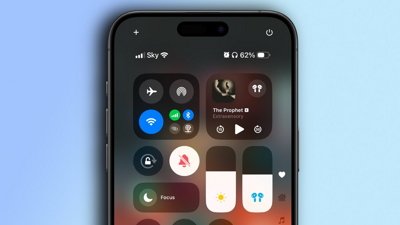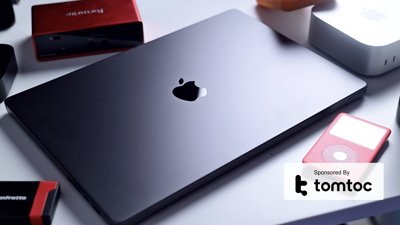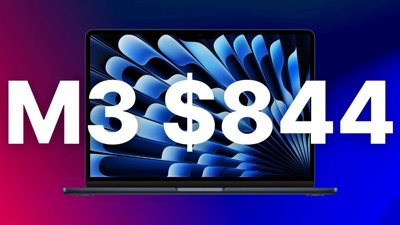Described as a natural extension of its relatively new Google Chrome browser, Chrome OS is being developed as a fast and lightweight operating system that will boot quickly and get users "onto the web in a few seconds."
Like its Android operating software for mobile phones, Google said it plans to open Chrome OS's code a bit later this year to allow the community of open-source developers to help shape and mold the new software.
The Mountain View, Calif.-based company said it plans to deploy Chrome OS initially for tiny notebooks called netbooks, with the first such devices running the new software expected to hit the market during the second half of 2010.
Since Chrome OS will run on both x86 and ARM chips, versions of the software that will function on full-fledged notebooks and desktop systems are also part of Google's forward looking plans.
The search giant describes the system's architecture as "simple," consisting of Google Chrome running within a new, minimal windowing system atop a Linux kernel that's designed to stay out of a user's way.
"We hear a lot from our users and their message is clear — computers need to get better," Google said. "People want to get to their email instantly, without wasting time waiting for their computers to boot and browsers to start up. They want their computers to always run as fast as when they first bought them."
Developers looking to author applications for Chrome OS will be able to do so using standard web technologies, and all existing web-based applications should also run on the software. Similarly, any application written for Chrome OS will also run in any standards-based browser on Windows, Mac and Linux.
Google is also placing an emphasis on security, and claims that it's "going back to the basics and completely redesigning the underlying security architecture of the OS so that users don't have to deal with viruses, malware and security updates."
Chrome OS won't require extensive configuration or the need for constant software updates, the company added. It also promises to make users' data accessible to them "wherever they are" so they "don't have to worry about losing their computer or forgetting to back up files."
 Sam Oliver
Sam Oliver













 AppleInsider Staff
AppleInsider Staff
 Malcolm Owen
Malcolm Owen
 Oliver Haslam
Oliver Haslam
 Andrew O'Hara
Andrew O'Hara

 Wesley Hilliard
Wesley Hilliard
 William Gallagher
William Gallagher
 Christine McKee
Christine McKee







107 Comments
I have been dreaming of this type of OS for years. Something that is fast reliable, secure and above all else, a paradigm shift from the past. I have been a dedicated Mac user since 1988. This new OS from Google looks very promising. Bring it on!!!!
That's great but I make my living using InDesign, Quark and Photoshop. Then there are all the other ancillary apps like FileMaker and tens of others, which help me run my life and business. And while I think google is great, their current apps, although certainly welcome (mostly because they are free) they are not killer by any means. In fact, I am unimpressed by quite a few of them. So, color me unconvinced.
Of course 20 years from now, this may all change but 20 years from now, google may have gone the way of the buggy whip.
What will be key for this new OS is whether they can work out deals with OEM's to pre-install it. People don't buy operating systems. They buy computers with OS's installed on it. This is why Windows and OS X has succeeded where Linux has largely (but not completely) failed.
Despite Microsoft's lock on the conventional non-Apple PC market, a Window (no pun intended) has opened up for competitors). Netbooks are small and lack computing power. There is no Windows OS that is designed to run efficiently, aesthetically, and that makes sensible use of the smaller screen real estate on netbooks. Intel's Moblin OS is one solution, but as far as I know it doesn't run on ARM. There is a niche that GoogleOS can fill.
The initial success of Android proves that Google can negotiate deals with OEMs to get their OSs on devices. If Google can sign up at least a few netbook OEMs, then it can help take away the market share of low-end commodity computing devices away from Microsoft. Microsoft will then be stuck in the middle between the high-end Apple and low-end netbook/mobile device markets.
Microsoft still has a lot of traction in the enterprise, but they're becoming increasingly out of touch with the needs of the consumer market, which as Apple knows well is an entirely different beast.
The more competition the better, but it sounds as though Google Chrome OS and Android are going to be competing against each other.
Anyway, it seems apparent that Google is setting itself up to be the new face of Linux and they're targeting netbooks, where Microsoft has been unable to go with Vista.
Windows 7 is fundamentally the same OS as Vista, so it's going to have an interesting time competing with Google's FREE alternatives in the cheap netbook category, one of the only segments of growth in the over-saturated PC market (the other growth sector being the premium computer market in which Apple's Macs are doing very well).